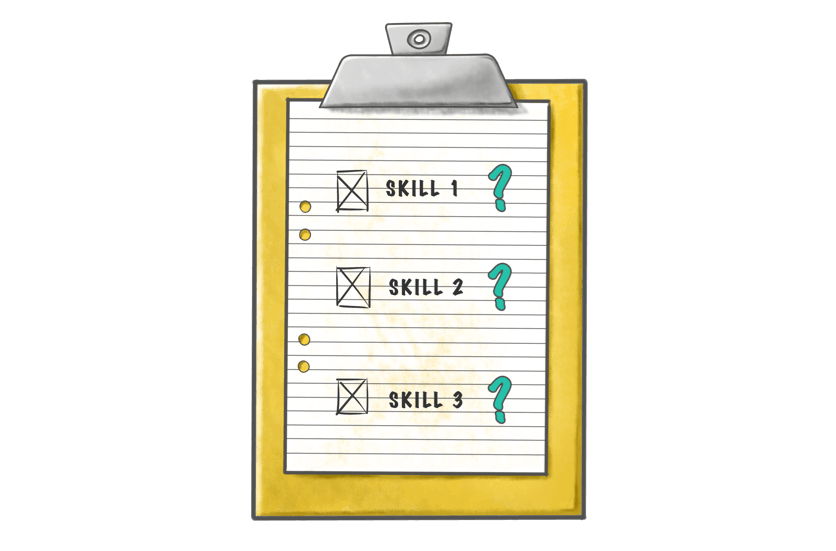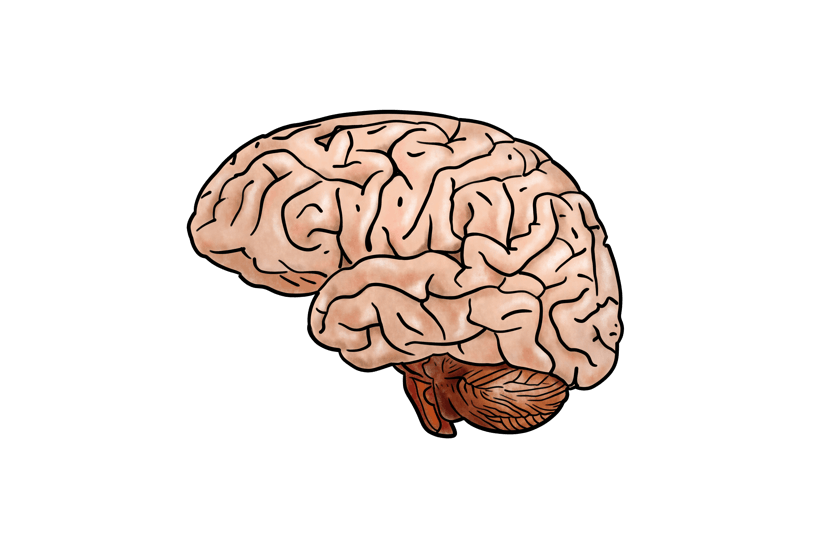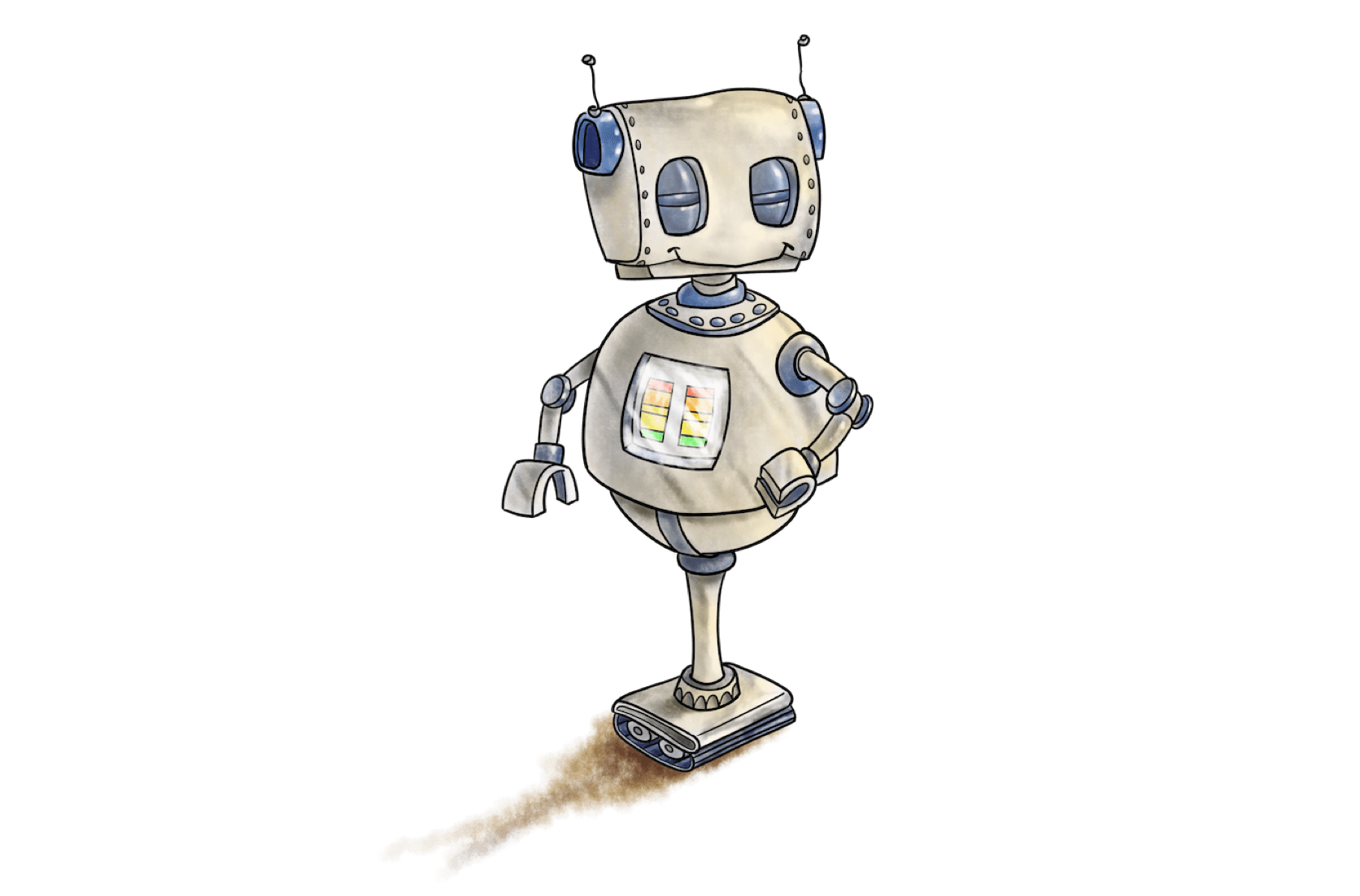
Have you ever done those workplace modules where you end up just clicking through the slides to get it done? Think how much more enjoyable it would have been if you’d felt the content was relevant to you or it at least included some funny memes! There is no one-size-fits-all approach when it comes to learning, so having a solution that is customised to the company’s business requirements, culture and budget, plus the individual’s needs and preferences, is a much more effective way to deliver learning content.
What is personalised learning?
You know how Spotify makes you a playlist every week with music they think you’ll like. Personalised learning is basically the same thing, but instead of niche Europop songs you’ve never heard of, it gives you things to learn that you’ll probably enjoy, and are relevant to your learning goals.
It ditches the idea that one learning style is relevant and effective for everyone. Instead, content is customised to each business and their people, and their personal development goals.
Why is personalised learning important?
Everyone’s working from everywhere. They’re at home; they’re in the office; they’re at a co-working space; or maybe, for the lucky few, they’re in a beachside holiday bungalow. Teams have ever-changing work schedules, and priorities are shifting all over the place.
Personalised learning means you can distribute a learning strategy that considers this, and sends out content that is most relevant for the learner. Learners can pace themselves, and that way are more likely to be engaged with the content.
Not to mention, if you’re in the learning space, you’ve probably heard of the skills shortage.
We’re in a time of change, and 75% of Australia’s CEOs are concerned about the availability of key skills. It means that there is an urgent need for upskilling and development of power skills. But everyone has different knowledge, skill sets and levels of experience, and every organisation has a different team with their own sets of learning needs.
Personalised learning is a solution for upskilling a team with a range of different skill sets and knowledge levels.
Employees want to learn, and L&D opportunities are a high priority when people are deciding where to work. People who feel valued are 3.2x more likely to report being happy to work for their current employer, and nearly 4x more likely to recommend their company to other people.
However, unless your learning has been tailored to the needs of your business and your learners, it is a waste of time and budget – and it doesn’t even effectively target learning gaps! Learners become disengaged and bored with learning, which can make it challenging to engage them for future learning, and your L&D budget has been flushed straight down the

With personalised learning, productivity increases as the learner is targeting their individual knowledge gaps. They’re not having to skim through content they are already familiar with, and instead can spend that time focusing on learning something new.
Innovations in AI and adaptive learning are leading the way to enable companies to deliver personalised learning campaigns, in a more efficient and focused way than ever before. And the best part? They’re more engaging for the learner. It’s a win for culture, a win for employees, and a win for your L&D effectiveness.
Where do you even start?
It probably feels pretty overwhelming to even know where to begin with creating personalised learning content.
And, to be honest, it’s not a small job. Tailoring your learning is a time and financial investment, but the payoff is so worth it.
You need to put aside the idea that standardised learning is the most efficient way of doing things. It’s not – not in the long run.
The best way to actually target knowledge gaps in your organisation is to ditch the one-size-fits-all approach, and understand the value of personalised learning. Communicate to your CEO the importance of targeted learning, and get them on board.
You may also be put off by the time investment required to prepare individualised content – and fair enough! If you’re managing a team of 200 people, creating 200 custom learning campaigns may be a daunting task. But there is a ton of innovation happening in this space, and software to manage personalised learning is just around the corner…
The future of tailored learning
There is a big focus on the role of artificial intelligence in aiding personalised learning programs, including utilising machine learning to adapt learning to the individual.
When you hear the words ‘machine learning’, your first thought might be the Robot Teacher from the Jetsons (well at least mine is), but actually, it’s a bit closer to reality than that!
Machine learning, or more specifically, deep learning, is a branch of AI that focuses on computer learning using models similar to the human brain. It learns from experience without needing to be programmed, just like the human brain.
AI isn’t a completely new idea in the workplace. It’s already being used in chatbots, and recommendation engines. How else does Netflix know to recommend Drive to Survive after you watched Ford v Ferrari last week?
Think about the possibilities!
If your business is trying to upskill everyone on tech fluency, but you work in the tech department, and are a highly skilled computer scientist who can program in 6 different languages, you’re probably not going to need the full Intro to the company’s new email platform that everyone else is lined up for. Luckily, with predictive learning, you’re only going to get content related to elements of the email platform that you are unfamiliar with. The system knows from previous learning or work you have completed which features you need help with, and which features you can use with your eyes shut.
It also works to improve knowledge retention. If you think you know something because you did a learning module on it 2 years ago, machine learning can figure out how much of that knowledge is actually embedded into your long-term memory bank, and re-deliver the content later. (Hint: you’ll probably need to re-learn a lot of it!)
The theory is, with machine learning you can do this all automatically: there is no need to individually assess capabilities to design learning content for every single team member. It turns a month-long task into a blink of an eye.

In the L&D world, the development of machine learning implies a revolutionary shift in how learning will be delivered.
As recommendation engines keep evolving, so will computers’ capacity for predictive analytics.
Predictive analytics is an element of machine learning that is hyper focused on a specific audience, and can gather all sorts of data.
With predictive analytics, a computer can determine patterns in someone’s learning in order to predict the most effective future process. It can look at job performance to analyse and prioritise which elements of the job need upskilling, then use that data to offer learning content accordingly; it can even predict employee sentiment based on historical data.
There’s honestly not much it can’t do.
Machine Learning at Yarno
At Yarno, our process is designed to identify behaviours that need addressing to upskill team members, create learning content that changes these behaviours, and then deliver it via our daily quiz platform.
Right now Yarno provides data and insights to help managers identify areas of strength and weakness amongst their team members, and plan future learning campaigns accordingly. However, we are developing Yarno further – leveraging machine learning via a recommendation engine, Yarno will identify and suggest content topics to focus on based on a learner's previous campaign performance. Knowing exactly where to target a learner's next learning campaign ensures they're presented with relevant content, at the right time, without the need for a manager’s manual input. Pretty cool, hey?!
We are excited to see how this will impact the way Yarno’s customers close learning gaps in their organisation, and the way learners engage with their learning campaigns.











































































































